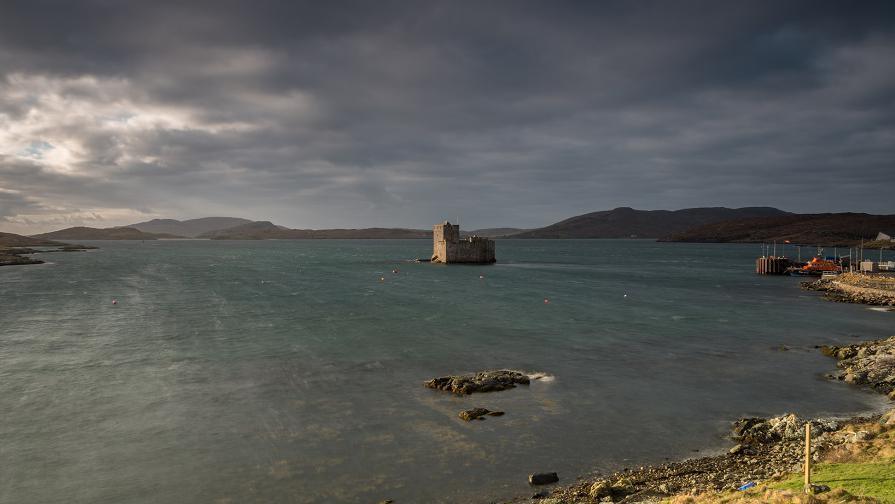Future of closed historic castle to be discussed

Kisimul Castle has been closed since the start of the Covid pandemic
At a glance
A public meeting is to be held on the future of Barra's Kisimul Castle
The clan stronghold has been closed to the public since the start of the Covid pandemic
Its owners have previously spoken of health and safety concerns around its reopening
The castle dates from the 15th Century and is steeped in legend
- Published
A meeting is to be held next week on the continued closure and future of a historic clan stronghold in the Western Isles.
Isle of Barra's Kisimul Castle dates from the 15th Century and was built on a rock at Castlebay as a Macneil power base.
The site, a prominent and popular landmark, has been closed since the start of the Covid pandemic.
Owner Historic Environment Scotland (HES) said in May the castle had not reopened this year for safety reasons, with some floor areas and walls in need of repairs.
Monday's public meeting in Castlebay Community Hall will have a presentation by HES, and a video message from local SNP MSP Alasdair Allan.
Mr Allan has previously raised concerns about the castle being closed to islanders and visitors.
HES' predecessor, Historic Scotland, took over responsibility for managing and conserving Kisimul in 2000.
At the time the organisation signed a 999-year lease from Ian Roderick Macneil, 46th Clan Chief, for £1 and an annual rent of a bottle of Talisker whisky.
Piracy arrest
Kisimul was a symbol of Gaelic power in the Middle Ages.
Its Gaelic name, Caisteal Chiosmuil, means castle of the rock of the small bay in English.
The chiefs of the Macneils of Barra claimed descent from legendary Niall of the Nine Hostages.
Niall was a 5th Century Irish warlord reputed to have fought against the Romans and armies of ancient Scotland, England and France.
The nine hostages are said to have been men seized during his campaigns abroad and were symbols of his power.
According to recent scientific research, Niall has up to three million living descendants who are spread out across Ireland, Scotland and North America.
Kisimul is thought to have been constructed on the orders of Gilleonan Macneil.
Below the castle he had a house built for the crew of his personal galley.
Another Macneil, known as Ruari The Turbulent, was arrested for piracy of an English ship during King James VI's reign in the 16th Century.